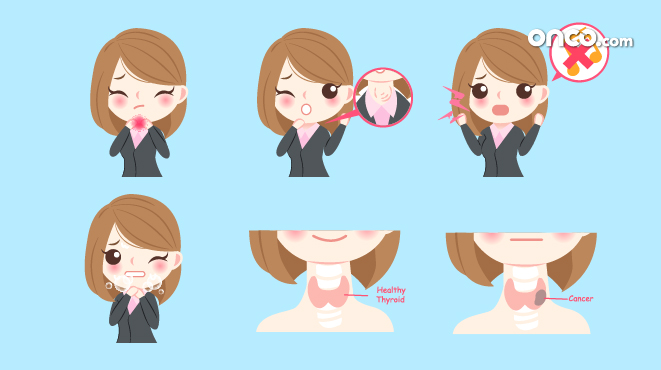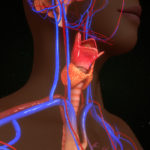What are the common early symptoms of throat cancer?
Throat cancer is a deadly disease because it generally does not get detected at an early stage. Most of the common signs and symptoms of throat cancer are general conditions that even healthy (non-cancerous) individuals can exhibit. But prolonged or persistent symptoms should not be ignored, and a physician’s opinion should be sought if any of these signs are seen for a long duration in an individual:

Tumours can make it difficult for people to swallow chewed solid foods. Prolonged difficulty in swallowing can be a sign of throat cancer.
Throat cancer can present itself in the form of voice changes at an early stage. This can also appear as a form of hoarseness that does not go away.
Cancerous tumours (in throat cancer) can lead to inflamed tonsils, which in turn can lead to a persistent sore throat. This should not be ignored, especially in individuals at high risk to throat cancer due to environmental exposure to carcinogens.
In throat cancer, tumour-affected sites can become enlarged, and/or exhibit fluid retention. Persistent swelling or pain in the eyes, ears, throat or the neck may be early signs of throat cancer.
Throat cancer patients often face difficulty in swallowing solid foods, as described above. In addition, cancer reduces the patient’s appetite, leading to severe and unexplained weight loss. Such symptoms should be addressed immediately.
Nosebleeds, or bleeding from the mouth
Throat cancer patients can experience continuous, inexplicable bleeding from the mouth (oral cavity). This is also a serious symptom. Sometimes, throat cancer patients can cough up blood (presence of blood in the sputum should not be ignored).
A nagging and persistent cough without any apparent flu/infection behind it could be indicative of early-stage throat cancer. This should be checked out with a doctor at the earliest.
A long-lasting sore or lump that does not heal like other wounds/sores, could also indicate the presence of throat cancer.
Throat cancer patients may present with early symptoms such as severe wheezing and difficulty in breathing without any explanation or history of illness.
As mentioned above, it is possible that these symptoms (one or all of them) are just indicators of a less severe disease. It is always advisable to visit a general physician to get such symptoms checked out, and based on a doctor’s opinion, these should be appropriately investigated under an expert oncologist.



